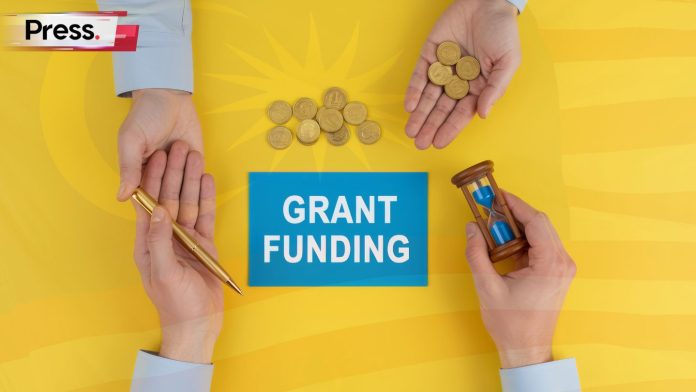Key Takeaways
- The 2026 Budget renews Malaysia’s SME Digitalisation and Automation Funds to boost productivity and innovation.
- SMEs can access co-funding up to RM5,000–RM500,000 for digital tools, automation, and export readiness.
- Key agencies include BSN, MDEC, SME Corp, and MIDF; each has specific eligibility rules.
- Proper documentation and early application improve approval rates and shorten disbursement time.
- Combining grants with tax incentives (RA, ACA, GITA) maximises total financial benefit.
Table of Contents
ToggleWhat Are the 2026 SME Grants All About
The 2026 SME grants aim to accelerate Malaysia’s digital and green transformation through targeted funding support.
Unlike one-off subsidies, these grants help businesses adopt long-term solutions such as automation, e-commerce, and sustainable technologies.
The main purpose is to help smaller enterprises overcome upfront costs that slow digital adoption and productivity. With local manufacturing and service sectors adapting to global competition, these incentives form the backbone of Malaysia’s post-recovery industrial strategy.
Which Grants and Funds Are Available in 2026
Several key funding programmes have been renewed or enhanced in the 2026 Budget.Each programme targets a different stage of business maturity from digital onboarding to green transformation.
Grant / Fund | Administered By | Funding Amount | Focus Area | Typical Use Case |
MSME Digital Grant (SDG/MADANI) | BSN (uses MDEC-listed TSPs) | 50% match up to RM5,000 | Digital adoption | Website/e-commerce, accounting, POS, e-Invoice, cybersecurity |
STTF (SME Technology Transformation Fund) | SME Bank | RM100,000 – RM3.0 million (up to ~80% margin; up to 10 years) | Digitalisation/automation capex & IT | Machinery, software, IT solutions, integration |
SFSAM (Soft Financing Scheme for Automation & Modernisation) | MIDF | Up to RM20 million (soft loan) | Process automation / upgrades | Robotics, CNC/machine modernisation, IoT sensors |
Export Grants | MATRADE (MDG / SEF) | MDG: lifetime RM300,000; SEF: activity-based caps (up to RM350,000 for some activities) | International expansion | Trade fairs, international certification, overseas office, tendering |
How to Check Eligibility Before Applying
Understanding eligibility saves time and prevents rejection.
Before preparing documents, verify your company’s status using the SME definition by SME Corp Malaysia:
Category | Annual Sales Turnover | Full-Time Employees |
Micro (all sectors) | < RM300,000 | < 5 |
Small (Manufacturing) | RM300,000 – < RM15 million | 5 – < 75 |
Medium (Manufacturing) | RM15 million – ≤ RM50 million | 75 – ≤ 200 |
Small (Services/Other Sectors) | RM300,000 – < RM3 million | 5 – < 30 |
Medium (Services/Other Sectors) | RM3 million – ≤ RM20 million | 30 – ≤ 75 |
Note: Use the “OR” basis (qualify if either turnover or employees falls in range).
General eligibility criteria include:
- At least 60% Malaysian ownership.
- Registered under SSM or relevant professional body.
- Actively operating for at least 6 months.
- Possesses a business bank account under the registered company name.
Some funds, such as those from MDEC and SME Bank, may require audited financial statements for the latest year or evidence of tax compliance.
What Documents Are Needed for the Application
Documentation is the most common bottleneck for SME grant approval.
Prepare the following standard items before applying:
- SSM registration forms (Form 9, 13, 24, 49, or Section 14 documents)
- Latest bank statements (3–6 months)
- Company profile and business plan summary
- Quotation or invoice from vendor / digital provider
- Latest financial statement or management accounts
- Copy of director’s NRIC
For grants like SME Digitalisation Grant, approved technology vendors (TSPs) must issue quotations that specify the software or service category eligible under MDEC’s listing.
How to Apply Step-by-Step
Most grants now use hybrid digital-manual submission systems.
Here’s a general process applicable to most 2026 schemes:
- Confirm Eligibility.
Check SME size and compliance with LHDN and SSM. - Select the Right Grant.
Choose based on your business stage (digitalisation, automation, or green transition). - Gather Documentation.
Prepare quotations, statements, and proof of operation. - Submit Application Online or Through Bank Partner.
- BSN (for SME Digitalisation Grant)
- MIDF or SME Bank (for automation and technology funds)
- SME Corp (for sustainability or capacity-building grants)
- Wait for Evaluation.
Average processing time ranges from 2–8 weeks, depending on completeness. - Implement Project.
Execute the purchase or installation within the approved period (usually 6 months). - Submit Claim.
Provide invoices, payment proof, and photos of completed projects for disbursement.
Tip: Keep digital copies of all submissions in a cloud folder. Missing attachments are the leading cause of grant delays.
What Are the Common Reasons for Rejection
Even promising applications fail when details are overlooked.
Top causes of rejection include:
- Incomplete financial records or unverified management accounts.
- Vendor not listed as an approved Technology Service Provider.
- Mismatch between business activity and selected grant purpose.
- Late submission after the application window closes.
- Poor justification for how the funding improves productivity.
Grant officers often favour applications with clear, quantifiable outcomes such as job creation, energy savings, or export growth.
How Long Does Approval and Disbursement Take
Timelines vary by programme and completeness. Expect several weeks for evaluation and, for loans, additional time for security/documentation.
- MSME Digital Grant (BSN): approval after eligibility checks and pays the TSP after you settle your portion and submit activation proof.
- STTF / MIDF loans: expect several weeks for evaluation, security, and documentation.
- MDG/SEF: reimbursements after activity and submission within the stipulated windows on MDT.
Sustainability/Green Support
Instead of a “Business Sustainability Grant (BSG)” at RM50k–RM200k, cite current channels:
- SME Corp (PKSlestari / BAP 2025 Alt Financing): ESG readiness programmes and financing with up to 40% grant conversion for qualifying SMEs.
- GITA/GITE (MGTC/MIDA): Tax incentives for approved green assets/projects/services (subject to current guidelines).
- DIAF-ESG (MIDA/MITI ecosystem): Matching support for ESG adoption (check current call-for-applications).
Combining Grants with Tax Incentives
You can pair cash support (grants/soft loans) with tax incentives, but optimise with an accountant:
- Automation CA: 200% allowance on the first RM10 million qualifying spend per YA (2023–2027).
- RA: available for qualifying reinvestments (manufacturing/selected activities).
- GITA/GITE: typically 100% ITA offset against up to 70% of statutory income; grant-funded green assets generally can’t also be claimed under GITA.
Tip: Model scenarios with your tax adviser to avoid double-claim breaches and to confirm which incentive produces the best net benefit in your specific YA. Consult your accountant to ensure double claims do not violate tax rules under LHDN’s Public Ruling framework.
Expert Tips for a Successful Application
“Treat your grant proposal like a business pitch, agencies want evidence that their funds will raise output or competitiveness.” advice from a development finance consultant.
“Keep everything digital and traceable, the 2026 cycles favour applicants who use e-invoicing and online submissions over paper-based claims.”, BSN officer.
Consistency between your proposal, financial reports, and invoices is key. Even minor inconsistencies can delay or disqualify an otherwise strong case.
Making the Most of Malaysia’s 2026 Funding Window
Funding opportunities in 2026 reward strategic planning and transparency.
With competition intensifying for digital and green grants, early preparation makes all the difference. Businesses that prioritise proper documentation, vendor alignment, and e-invoicing readiness tend to gain faster approvals and build stronger credibility.
The real advantage lies in combining grants with tax incentives to sustain growth beyond a single project cycle.
If you’re looking to strengthen your business visibility, credibility, and digital presence while tapping into these opportunities, Press, a Digital PR agency in Malaysia can help you plan, position, and grow strategically.
Frequently Asked Questions About How to Apply for 2026 SME Grants & Digitalisation Funds
What is the SME Digitalisation Grant for 2026?
It provides 50% matching up to RM5,000 for SMEs adopting approved digital tools and services.
Can I apply for more than one grant?
Yes, provided each serves a distinct purpose (e.g., one for automation, another for export).
How long does it take to receive grant approval?
Usually 2–8 weeks depending on the agency and completeness of documents.
Do I need audited accounts to qualify?
Yes for larger funds (STTF, Automation Fund); micro-grants may accept management accounts.
Are digital marketing expenses eligible?
Only those under approved TSP packages for website, SEO, or e-commerce integration.
Can grants be combined with tax incentives?
Yes, many can be paired with RA, ACA, or GITA to maximise total benefit.


